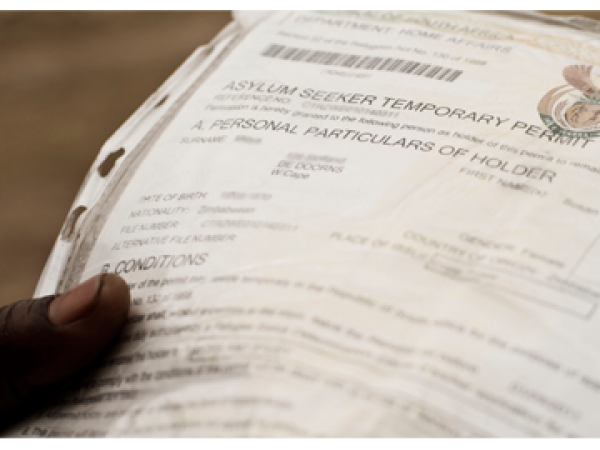Refugee children turned away by Cape schools
Immigrant parents battle red tape to get their kids in school

At least 40 children of refugees are struggling to get into Cape Town schools, say refugee rights organisations PASSOP and Voice of Africans for Change (VAC).
The organisations say they know of about 40 children, between grade one and eight, who are struggling to get into school. There are also about 15 learners who could not write matric examinations last year due to their refugee documentation.
Some parents told GroundUp they had been trying to apply to schools since applications opened in February for next year. The deadline was Friday, 15 March.
Parents who spoke to GroundUp said they had been turned away from Parow West, Parow Inclusive and Parow High because the children did not have their own documents.
The parents said these schools were requiring study permits in the child’s name, or proof that an application for one had been made at Home Affairs.
Western Cape Department of Education spokesperson Jessica Shelver said schools could enrol learners without documents “but the parents must provide proof of having applied” to Home Affairs. “Schools generally work on the rule that if the proof is not provided within three months, the school may deregister the learner.”
VAC director Germain Kalombo said that since some of the children have South African birth certificates the schools should have been lenient and accepted applications while the parents are working on getting documents.
He said getting documents for the children of refugees could take a long time.
“Even if they do go for family-joining at Home Affairs they would stand the whole day in the queue and without getting any help. There is a backlog at Home Affairs,” he said.
Family joining means granting refugee status (or a similar secure status) to family members “accompanying a recognised refugee”, according to the University of Cape Town’s Refugee Rights Unit at its Law Clinic.
In 2018 GroundUp reported how refugees in Cape Town have been struggling with the family-joining process. At the time, the Scalabrini centre in Cape Town said that since 2013 they’d had about 530 individuals approaching them for assistance with the process.
VAC also said that for family-joining Home Affairs wants the child’s birth certificate from the original country or the natal clinic card from when the child was born.
For obvious reasons, many refugees would not have these or have access to these.
PASSOP said parents with Zimbabwe Exemption Permits (ZEPs), as well as those with refugee status, continuously faced problems enrolling their children, if the children did not have a permit.
Previously GroundUp reported how a woman had to buy a permit in order to put her child in school. She was caught between Home Affairs and the contradictory policies of the education department. A study permit in the child’s name is required when submitting an application, but Home Affairs does not issue a study permit without proof of acceptance at a school.
In February, GroundUp reported on a woman who has been on a ZEP permit since 2008 who was told by Home Affairs to go to Zimbabwe to apply for a child accompanying visa for her child born in South Africa.
To go to Zimbabwe simply to apply for a visa is an exorbitant cost for many parents who must also take leave from work.
Home Affairs media manager David Hlabane said, “The matter must be handled in terms of applicable policies, procedures and requirements, including for school admission.”
Support independent journalism
Donate using Payfast

Don't miss out on the latest news
We respect your privacy, and promise we won't spam you.
Next: From security guard to successful pig farmer
Previous: Give us water not toilets, say Newcastle residents
© 2019 GroundUp.
This article is licensed under a Creative Commons Attribution-NoDerivatives 4.0 International License.
You may republish this article, so long as you credit the authors and GroundUp, and do not change the text. Please include a link back to the original article.
